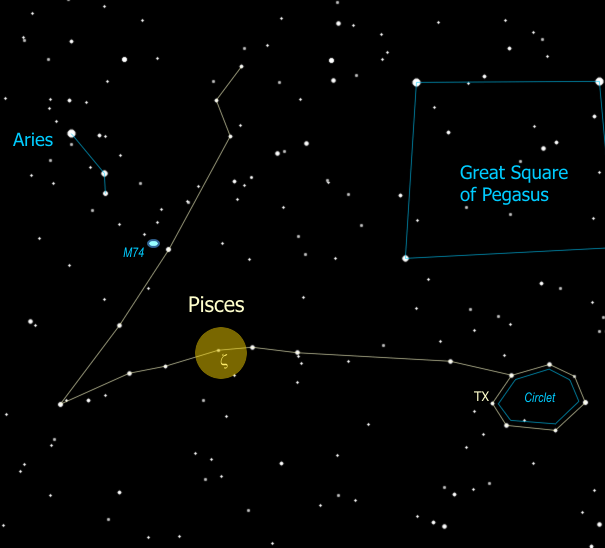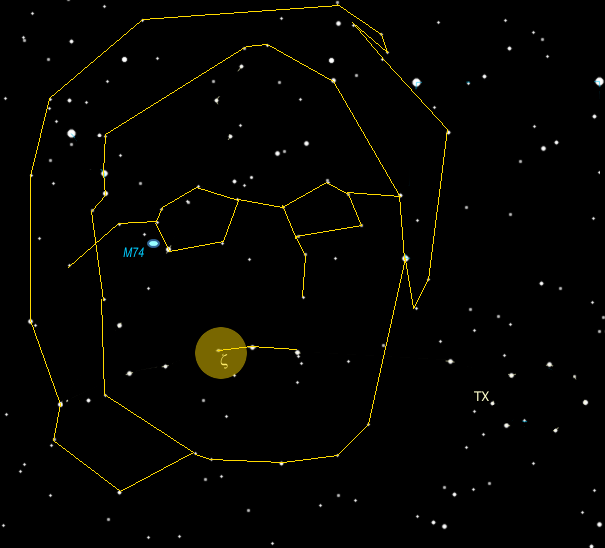My New Star Sign
The attention astrology receives amazes me. I’m told that around a quarter of people genuinely believe that the positions of celestial bodies can be used to divine the future, but nobody actually acts like they believe it. They just say they do in surveys. I’m therefore surprised when, say, a dating website works out my starsign from my date of birth and sticks it up on my profile as if someone will care. It does presumably filter out eleven twelfths of girls thick enough to base their romantic endeavours on the zodiac, so that’s arguably useful, and I suppose it also allows me to search for partners with birthdays that don’t clash with mine or with Christmas, but basically I’d turn it off given the choice.
Late last year LiveScience published an article about how the precession of the Earth causes the constellations to drift around the sky over thousands of years, and this meant that the signs of the zodiac were now out of step with the constellations whose names they carry. For example, the usual “tropical” zodiac makes me an Aries, but here’s (roughly) where the sun was when I was born:
 Picture from http://my.execpc.com/60/B3/culp/astronomy/Fall/Zodiac.html
Picture from http://my.execpc.com/60/B3/culp/astronomy/Fall/Zodiac.html
The Star Tribune published a comment, which included a calendar so you could work out your new starsign without looking up the sky map. This included the constellation Ophiuchus (or Serpentarius) which was dropped by the Babylonians because dividing a circle into 13 bits is too hard (or something; I don’t know how the Babylonians rolled). This went viral, because people love a good ‘they changed it’ story. It’s like when ‘they’ got rid of Pluto, or when ‘they’ abolished limbo – “they” in these cases being the International Astronomical Union and the Catholic Church respectively (although the latter story is mostly false even before you start questioning whether the Pope gets to choose what hypothetical planes of reality exist). However, according to a delightfully pointless article in Toronto’s Star entitled “Relax, says astrologer. You’re still a Virgo”:
It’s all in the planets, and the names of the signs are just a handy convenience that is a lot easier than saying, “when the sun is in the second house,” [Toronto astrologer Milada Sakic] told the Star on Friday. Sakic, an astrologer for 20 years and teacher with the Canadian Association for Astrological Education, explains, “Astrology does not look at the relationship between the constellations and the Earth. We study the relationship with the Sun and the Earth and the planets. The constellations, she reminds us, are “many light years away, illusions in our night sky. Their effect on us is very secondary.”
Quite.
So not only has nothing changed, but astrology has no governing body any more than English does, so there is no ‘they’ who can change it in the first place. Nobody can tell Milada Sakic she’s doing it wrong except by pointing out that her predictions might as well be based on the positions of the stars she sees when you wallop her on the head with an encyclopædia of actual facts for all that they have anything to do with future events. That both Sakic and Jacqueline Bigar, the Star’s resident astrologer, will have to do 8.3% more work if Serpentarius catches on is not mentioned.
But I still don’t really feel like Pisces either truly represents me or actually looks very much like any number of fish, so I took another look at the sky map:
Then I started adding my own lines:
And suddenly I realised what my new, true starsign is:
Here, therefore, is my horoscope:
Dawkins (March 14th — April 28th) — You are a British ethologist and evolutionary biologist. You are an emeritus fellow of New College, Oxford, and were the University of Oxford's Professor for Public Understanding of Science from 1995 until 2008. You came to prominence with your 1976 book The Selfish Gene, which popularised the gene-centered view of evolution and introduced the term 'meme'. In 1982, you introduced into evolutionary biology an influential concept, presented in your book The Extended Phenotype, that the phenotypic effects of a gene are not necessarily limited to an organism's body, but can stretch far into the environment, including the bodies of other organisms. You are an atheist and humanist, a Vice President of the British Humanist Association and supporter of the Brights movement. You are well-known for your criticism of creationism and intelligent design. Notable Dawkinses include Professor Richard Dawkins (born 26 March 1941).
It’s not bang-on, but it’s better than anything the old system gave. And it does work very well for at least one person.


